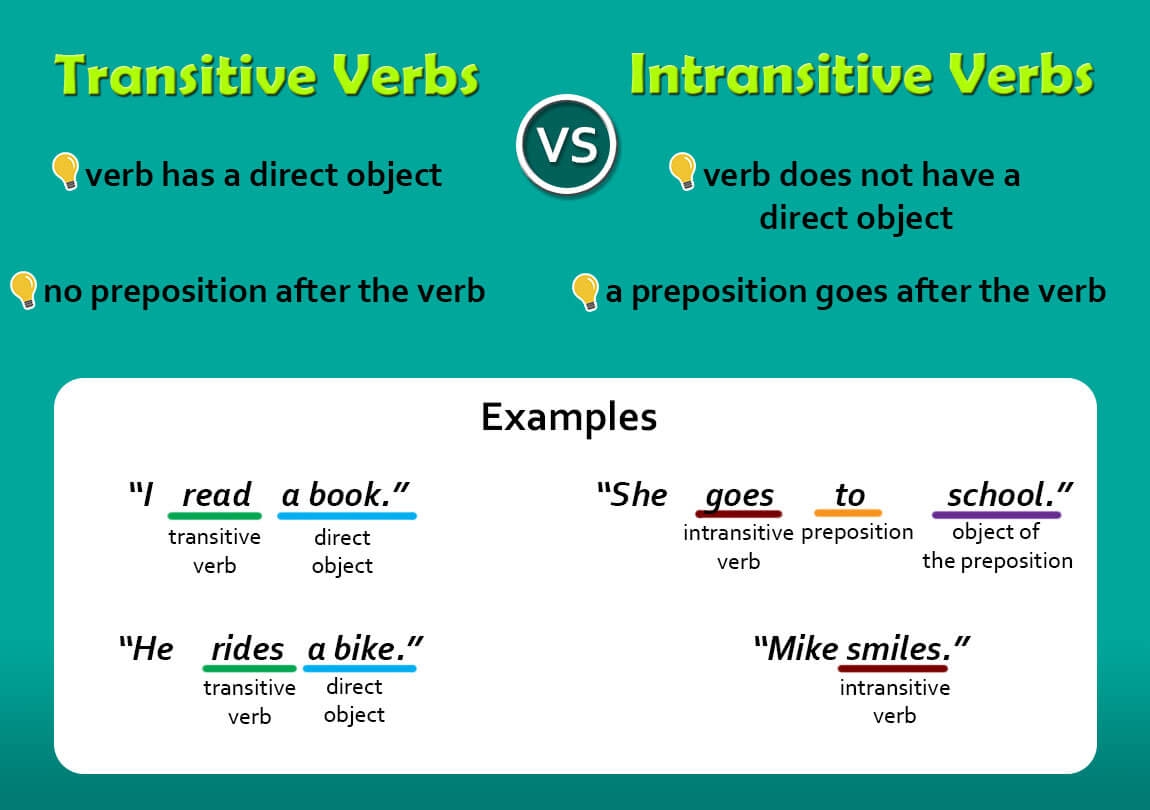In the realm of grammar, verbs play a crucial role in forming sentences and conveying actions. One important category of verbs is transitive verbs, which require an object to complete their meaning. Understanding transitive verbs is essential for constructing clear and meaningful sentences in English.
Transitive verbs are verbs that require a direct object to complete their meaning in a sentence. These verbs act upon a direct object, which receives the action of the verb. Without a direct object, a transitive verb can leave a sentence incomplete or ambiguous.
Transitive Verb Meaning
Transitive verbs are action verbs that require a direct object to complete their meaning. The direct object is the recipient of the action performed by the verb. For example, in the sentence “She ate the apple,” the transitive verb “ate” acts upon the direct object “apple.” Without the direct object, the sentence would lack clarity and completeness.
Transitive verbs can be identified by asking the question “what?” or “whom?” after the verb. If the answer to these questions completes the meaning of the verb, then it is likely a transitive verb. For instance, in the sentence “He read a book,” asking “He read what?” leads to the direct object “book,” indicating that “read” is a transitive verb.
It is important to distinguish transitive verbs from intransitive verbs, which do not require a direct object to complete their meaning. Intransitive verbs express action without transferring it to a direct object. For example, in the sentence “She sleeps,” the verb “sleeps” is intransitive as it does not act upon a direct object.
Transitive verbs are commonly used in everyday language to express actions that involve a receiver or recipient. By understanding the meaning and usage of transitive verbs, writers and speakers can communicate effectively and convey their intended message clearly. Practicing with transitive verbs can help improve sentence structure and overall writing proficiency.
In conclusion, transitive verbs play a vital role in sentence construction by requiring a direct object to complete their meaning. By recognizing and using transitive verbs correctly, individuals can enhance the clarity and coherence of their writing. Mastering the use of transitive verbs is essential for effective communication and proficient language usage.
